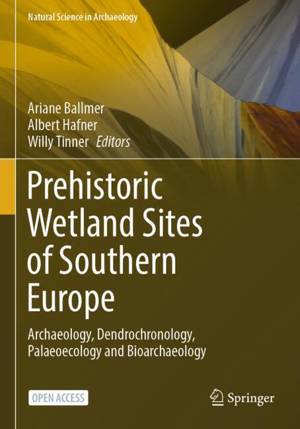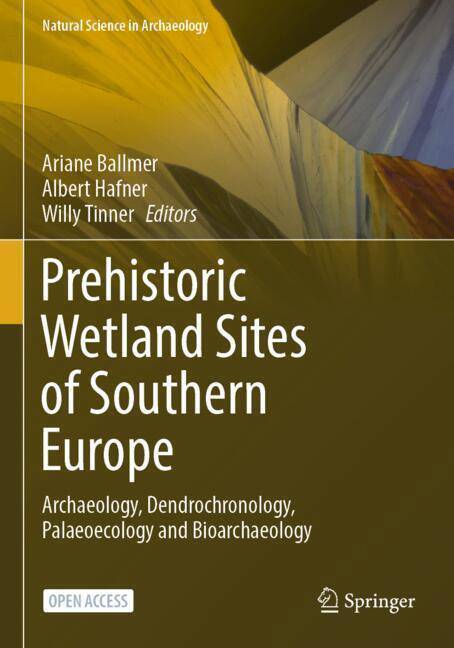
- Retrait gratuit dans votre magasin Club
- 7.000.000 titres dans notre catalogue
- Payer en toute sécurité
- Toujours un magasin près de chez vous
- Retrait gratuit dans votre magasin Club
- 7.000.000 titres dans notre catalogue
- Payer en toute sécurité
- Toujours un magasin près de chez vous
Prehistoric Wetland Sites of Southern Europe
Archaeology, Dendrochronology, Palaeoecology and Bioarchaeology
Description
This is an open access book. Unique in its scope, this book provides for the first time a Southern European perspective on prehistoric wetland settlements and their natural environment. These are dwellings originally built in humid locations, i.e. on shores and in shallow water areas of lakes, bogs, marshes, rivers, estuaries and lagoons. The relevant archaeological remains are in most cases waterlogged and offer outstanding preservation conditions for organic materials and are moreover in close proximity to uninterrupted natural archives (e.g. lake or mire sediments), which allows for a broad range of transdisciplinary research approaches. The sites discussed in this book date from the Neolithic and the Bronze Age (c. 5500-1000 BC), and are located in nine countries of Southern Europe, i.e. Spain, France, Italy, Slovenia, Croatia, North Macedonia, Albania, Greece and Bulgaria.
Four dimensions of prehistoric wetland settlements are explored in the book - the archaeological, the dendroarchaeological, the palaeoecological and the bioarchaeological: Part I is dedicated to archaeology, i.e. the excavation of settlement remains, their transdisciplinary exploration as well as their interpretation; Part II deals with dendroarchaeology and its contribution to the understanding of occupation sequences and regional chronologies; and Part III concerns uninterrupted off-site palaeoecological records of past ecosystem change, including human-environment interactions, as well as bioarchaeological on-site approaches to subsistence strategies and land use practices.
Prehistoric Wetland sites of Southern Europe showcases how different disciplines and areas of expertise from the humanities and the natural sciences meet on an equal footing to elaborate coherent pictures of the past. Besides a cross-section of research statuses of different archaeological sites, currently ongoing research as well as novel, hitherto unpublished case studies and findings are made accessible to the international research community. Drawing on a wide range of expert contributions from both archaeology and the natural sciences, this book targets scholars, professionals, and students from the fields of prehistoric archaeology and palaeo-sciences, and is furthermore of interest to cultural-heritage stakeholders.
Spécifications
Parties prenantes
- Editeur:
Contenu
- Nombre de pages :
- 318
- Langue:
- Anglais
- Collection :
Caractéristiques
- EAN:
- 9783031527821
- Date de parution :
- 17-12-25
- Format:
- Livre broché
- Format numérique:
- Trade paperback (VS)
- Dimensions :
- 178 mm x 254 mm






